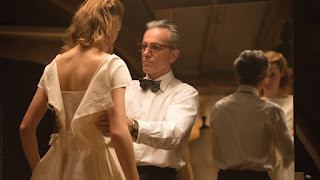and compromise…and, of course, love. The Beatles sang “All You Need Is Love”—but without compromise and loyalty, love can be fleeting, after all Tina Turner implored “What’s Love Got to Do With It”; it’s just “a second hand emotion.”
A brief look at how loyalty is defined in politics is part
of the political paralysis. Crossing over ‘party lines’ is viewed as disloyal,
rather than a posture that shows compromise. Thus, loyalty to one’s donors,
regardless of the consequences, finds Republican politicians mute as they wait
for orders from the NRA, especially when parents of murdered children demand a
total ban on military assault weapons, increased age limits for gun purchases,
and other innocuous solutions like a “universal background check.” So they
repeat the phrase “we’re looking into it…”; as if we haven’t been looking at
mass murders year after year.
Mr. Trump made people swear an oath of loyalty to him when
they entered a rally in Vermont (see source below). He fired James Comey when
he would not be loyal—even though the FBI Director replied that he would be “honest.”
That is his job description. Sasha Chapin in her New York Times Magazine article of November 15,2017 explained: “There
are shades of this thinking in the title of the coming book by the former
F.B.I. director James Comey: ‘A Higher Loyalty.’ It’s with Comey, of course,
that Trump reportedly made his boldest call for fealty, telling the director, ‘I
expect loyalty’ — the obvious implication being that Comey should shy away from
legal inquiries that might harm the president.” Even Republican senator Jeff Flake, announced that: “A
segment of his party, he said, had come to believe that ‘anything short of complete
and unquestioning loyalty’ to the president was unacceptable.”
 Loyalty has been easily demanded by Mr. Trump; however, two
divorces led to two broken oaths. “Stormy” times are brewing in his third “till
death do us part” marriage. Do what I say, not what I do—seems to be the order
of the day. Somewhere in the order of 34 White House employees have left. Three
of his top administrators have taken an oath that if one is fired they all go,
does not portend a long tenure for any of them.
Loyalty has been easily demanded by Mr. Trump; however, two
divorces led to two broken oaths. “Stormy” times are brewing in his third “till
death do us part” marriage. Do what I say, not what I do—seems to be the order
of the day. Somewhere in the order of 34 White House employees have left. Three
of his top administrators have taken an oath that if one is fired they all go,
does not portend a long tenure for any of them.
However, there is one person Mr. Trump seems unshakably
loyal to—Mr. Putin. In spite of all three major investigative forces, Mr. Trump
simply asked his friend Mr. Putin if the Russians “meddled in our election”.
Mr. Putin said “No” and that is good enough for Mr. Trump. This is contrary to
the most paramount oath he has ever taken: to preserve, protect and defend the
United States …”—the Oath of Office. When the truth gets out, and it will (it
always does thanks to the Freedom of the Press, the FBI and CIA and NSA),
Americans will find out that Mr. Trump’s rise to power (from bankruptcy) will
eventually be a ‘deal with the devil…so to speak.’ Tom Friedman latest column
in NY Times explores the likely scenario.
















